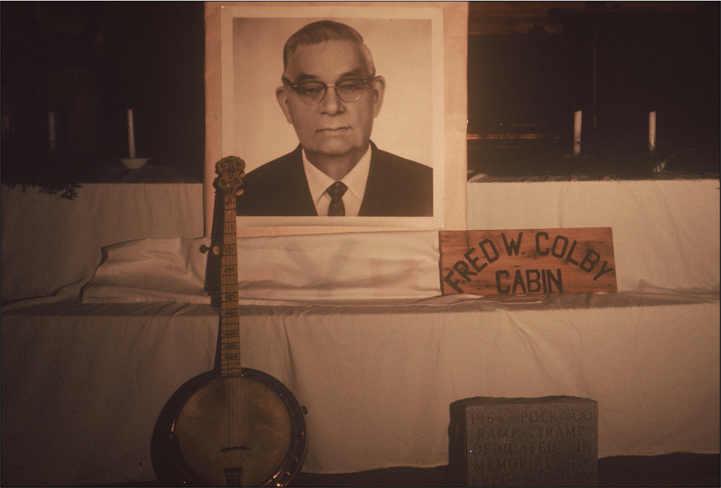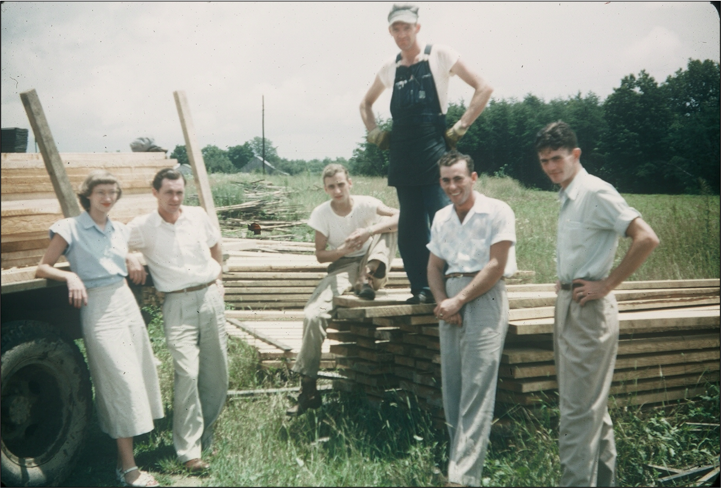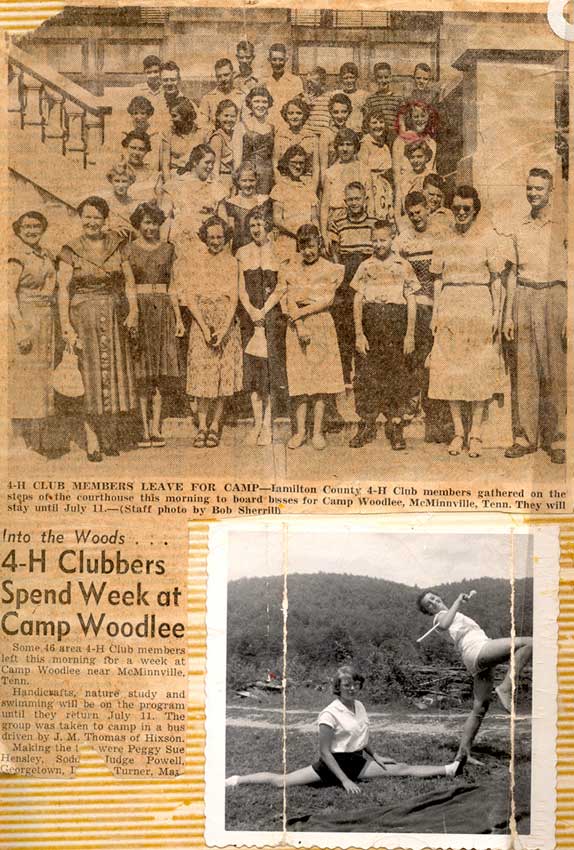
HISTORY
Camp Woodlee was founded in 1951 by Fred Colby, the Tennessee 4-H Camping Specialist and also known as
the “Father of Camp Woodlee.” Mr. Colby was instrumental in locating and selecting the current location of state camp in 1949.
The campsite itself was given to the 4-H and Young Farmers and Homemakers (now Young Farmers and Ranchers) of Tennessee
by the heirs of Mr. E.K. Woodlee.
Mr. Woodlee, a personal friend of Colby’s, originally offered the land during the Great Depression but Mr. Colby
felt as if the task of building a camp could not be taken on at that time and postponed action.
When the idea of a state YF&H
and district 4-H camp came up again several years later, Mr. Colby remembered the Woodlee offer.
E.K. Woodlee had passed away, but Mr. Colby approached Woodlee’s son, O.C. Woodlee, Sr., to see if the offer still stood.
It did, and the land was donated. Appropriately, the camp became known as “ Camp Woodlee.”
Cabins were constructed with the tremendous help of eleven different county 4-H and YF&H clubs. By August 1951,
seven cabins had been built and the first YF&H camp was held August 6-11. Camp Woodlee served as District III
4-H camp from 1951 until 1964, until campers were asked to share facilities with District IV 4-H’ers at the
Clyde M. York 4-H Training Center in Crossville, Tennessee.

By 1986, the original kitchen building, which doubled as an army surplus center in World War II,
was on the verge of condemnation and the Camp Woodlee was asked to either close the camp or replace the kitchen.
The Tennessee National Guard agreed to construct a kitchen building for Woodlee as a training exercise.
Volunteers raised money for the materials and the soldiers did the labor. Members of the National Guard saved the camp.
Not only did they build the kitchen, they also put all utilities underground and built decks for the cabins.
Weeklong camps at Camp Woodlee continued until 1979. Today, the camp is used by more than1,000 visitors a year,
including 4-H and Young Farmer & Rancher groups. Campers still convene together for Memorial Day & Labor Day
weekend camps annually, as well as group retreats and family gatherings.
Mr. Colby had very strong views about summer camping methods. While some practices have certainly changed
at Camp Woodlee (i.e., outhouses for the call of nature, and bars of soap and the river for girls’ hair washing),
the basic camping practices he instilled are still utilized. Activities at Camp Woodlee include but are not limited to,
cookouts, floating the Collins River, fishing, frog gigging, exploring Hubbard’s cave, dancing, singing, storytelling,
board games, nature studies, and crafts.

32 Clendenon Lane, McMinnville, TN - (931) 692-3695 |

